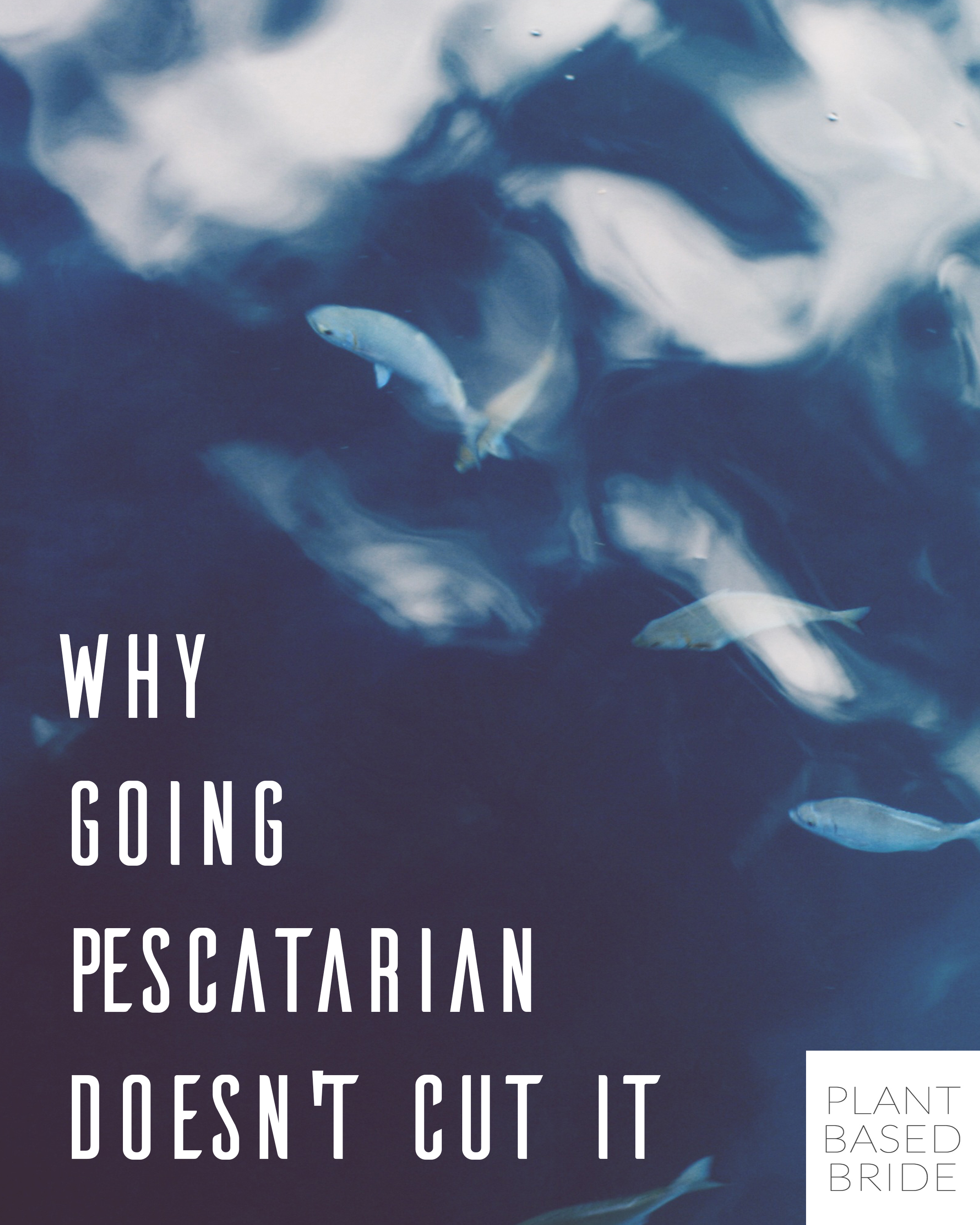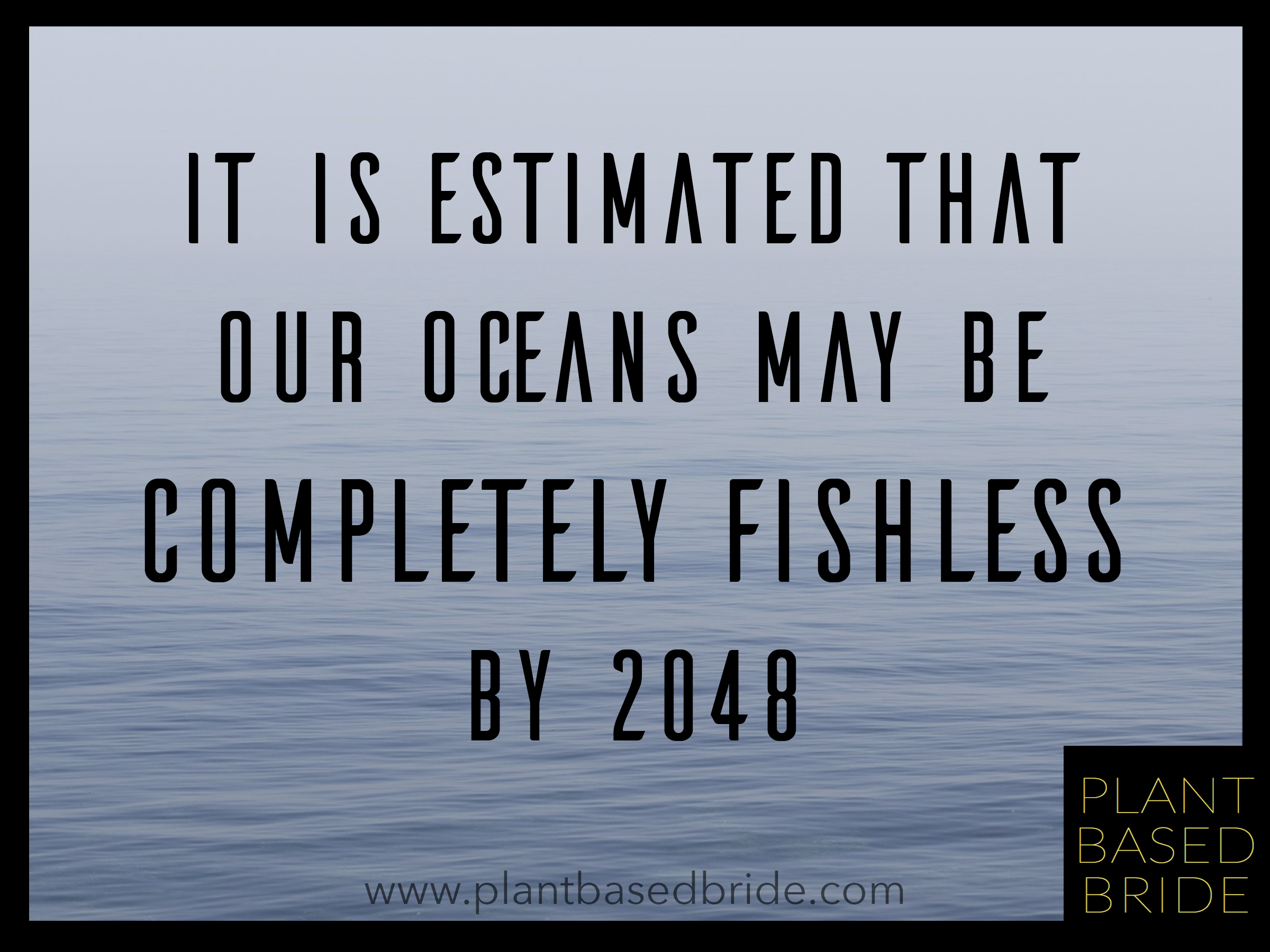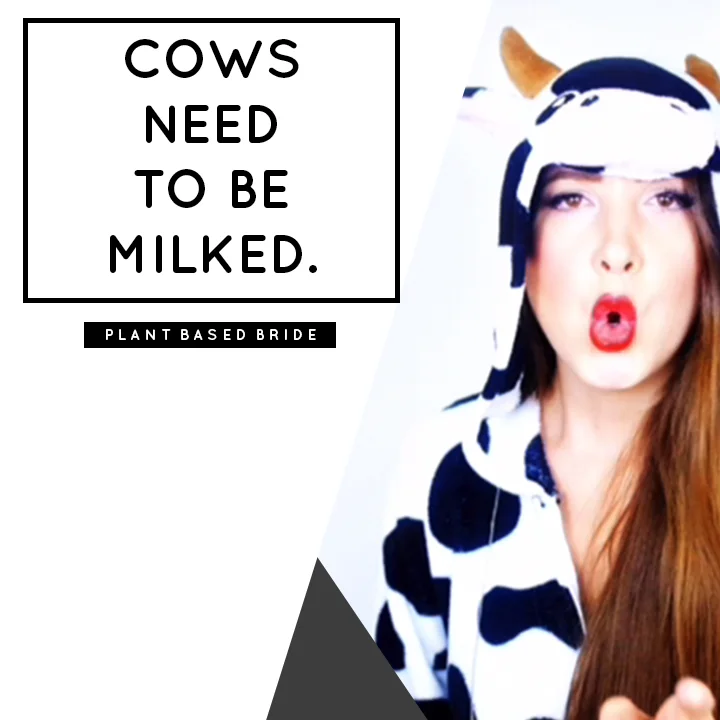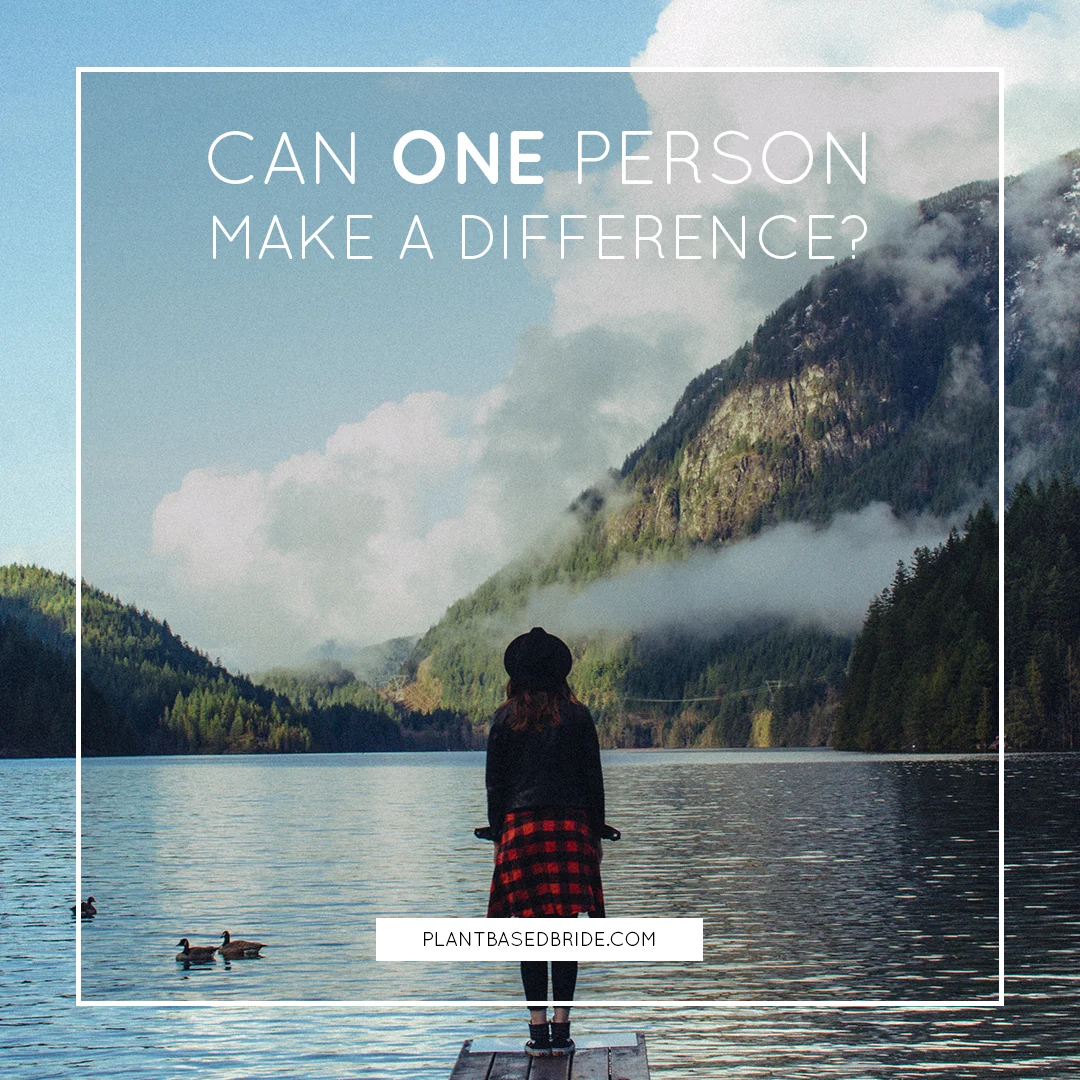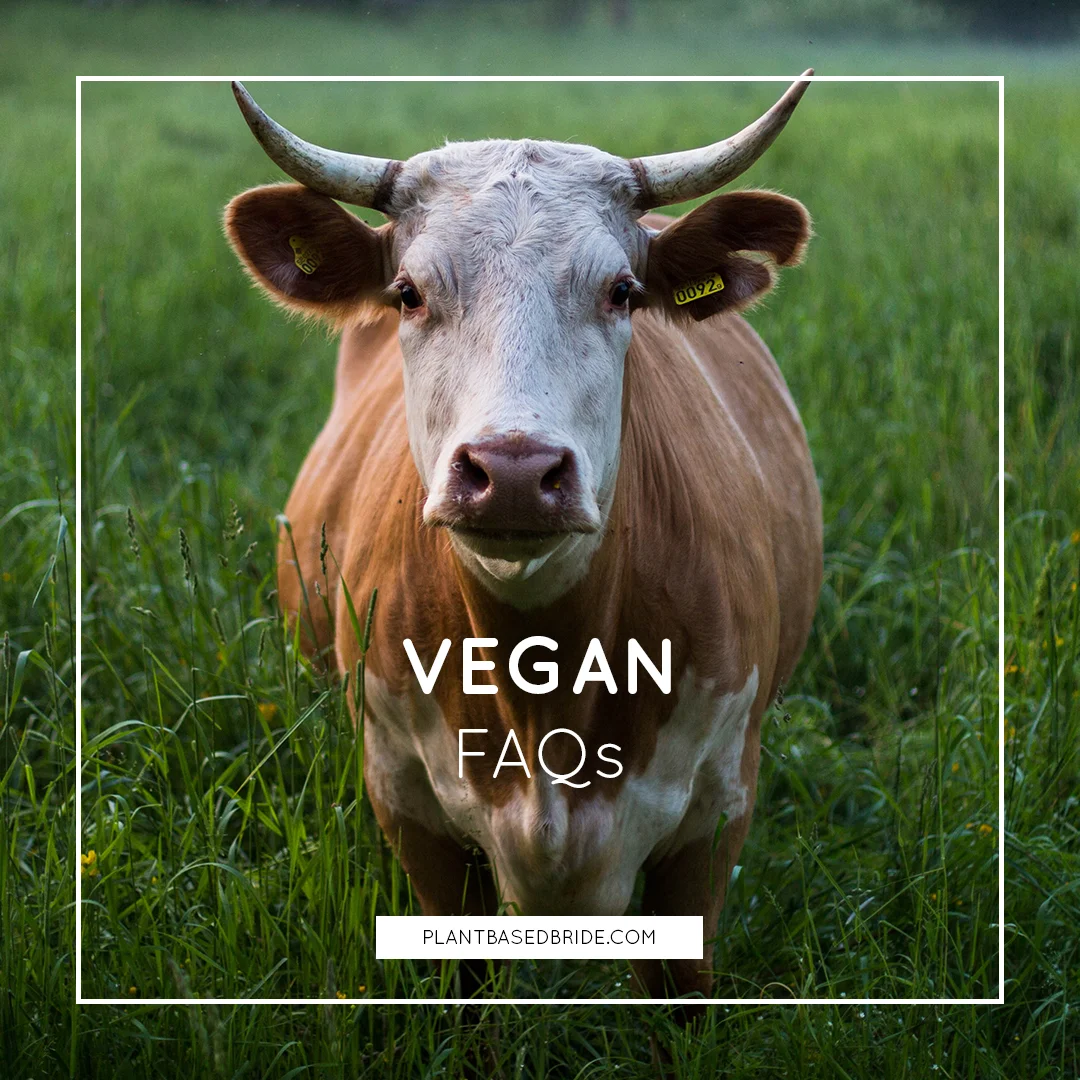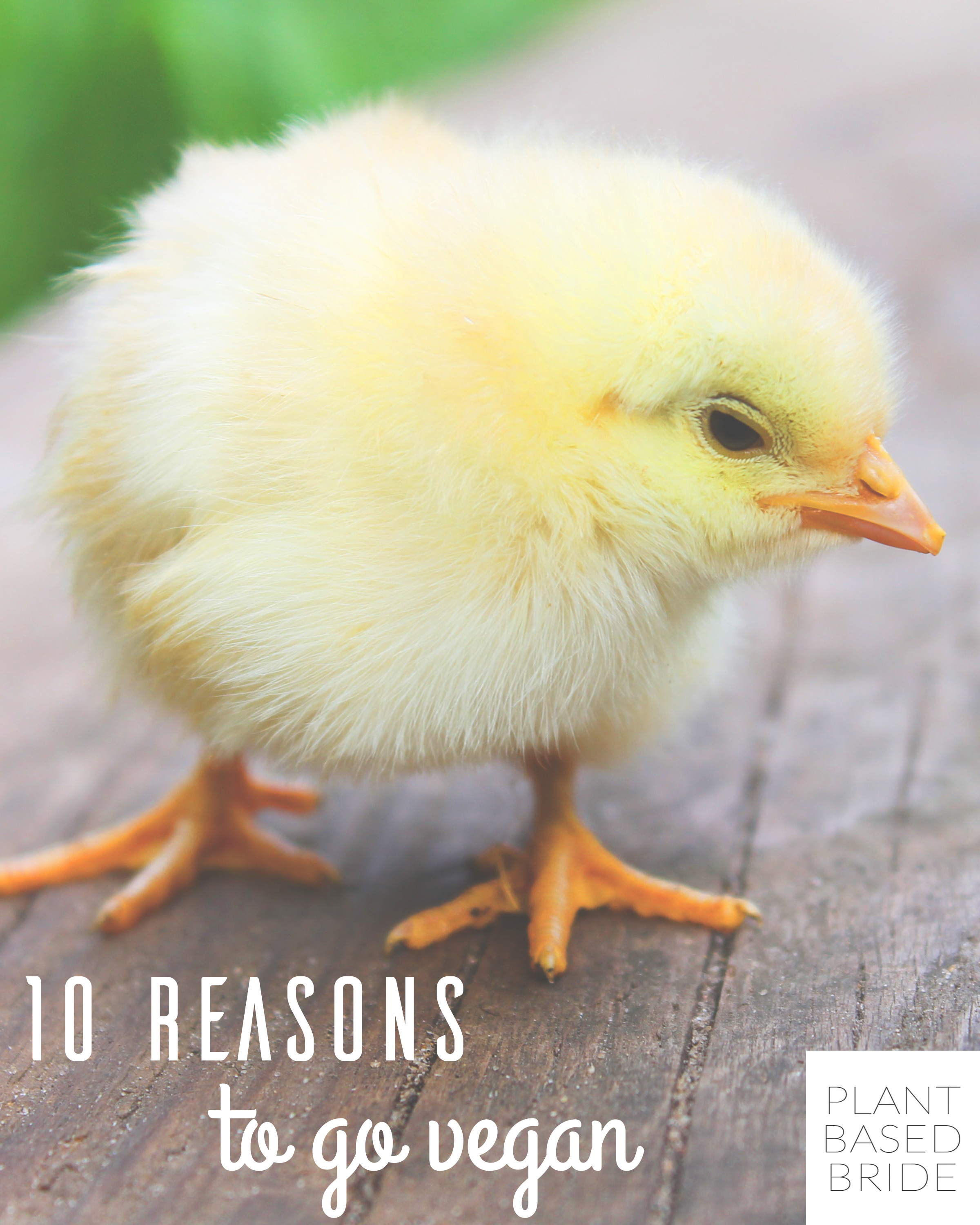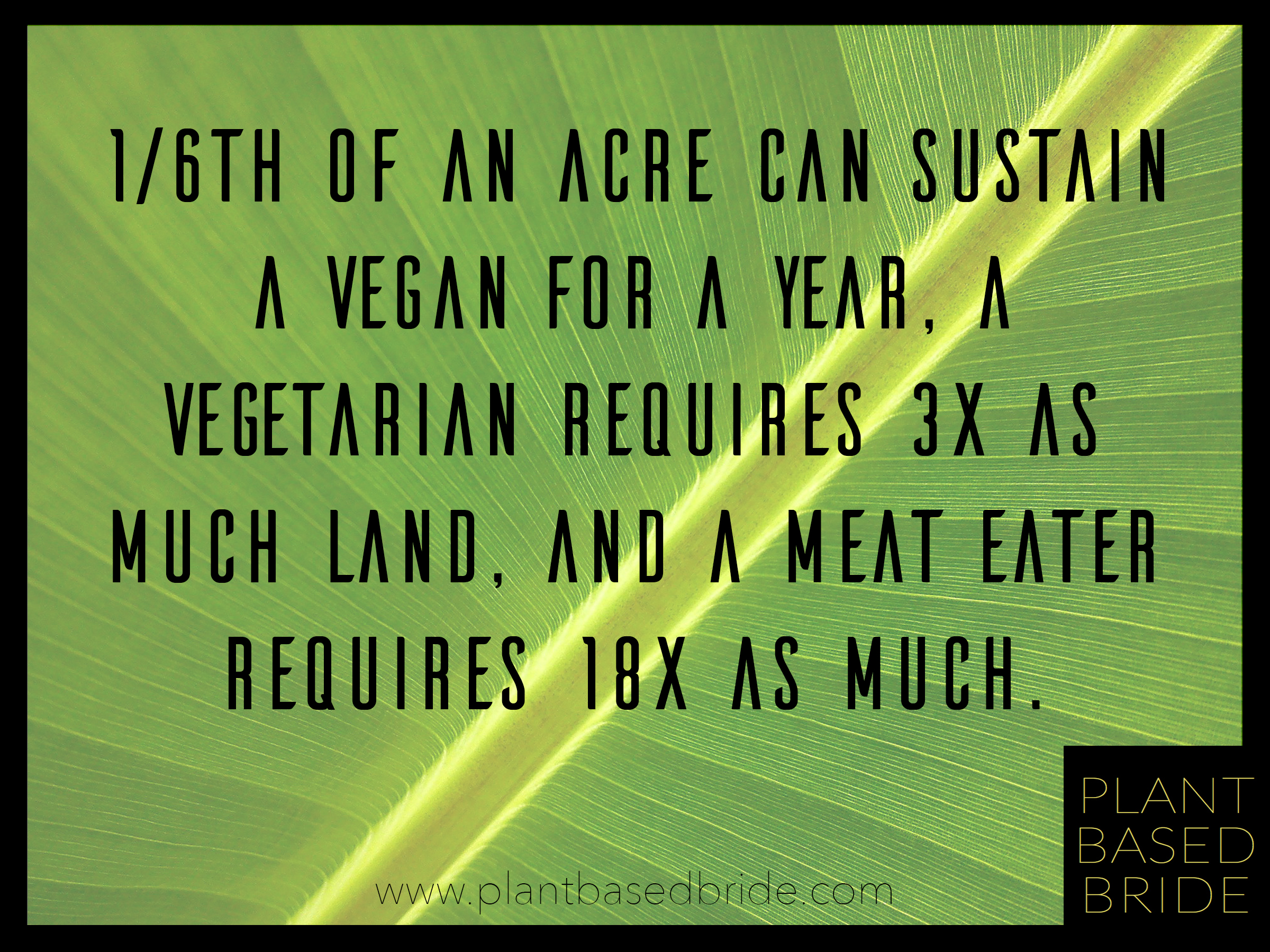
the blog.
Non Vegan Ingredients to Avoid
Whether you're a new vegan or a vegan veteran, keeping track of no-no ingredients can be incredibly difficult. Friends and family, from longer term vegans all the way to new vegetarians, have been lamenting hidden animal ingredients popping up all over the place in the foods they used to enjoy with a clean conscience. That's why I'm creating this handy guide! Pin or bookmark it so that you can come back and use it as a reference while shopping, making your life that much easier. These ingredients may be found in food, personal care products, clothing, household products, and more. Remember: no one is perfect and it's impossible to successfully avoid all of these ingredients 100% of the time. Don't beat yourself up or get too caught up in the purity of it all and just do your best!
Whether you're a new vegan or a vegan veteran, keeping track of no-no ingredients can be incredibly difficult. Friends and family, from longer term vegans all the way to new vegetarians, have been lamenting hidden animal ingredients popping up all over the place in the foods they used to enjoy with a clean conscience. That's why I'm creating this handy guide! Pin or bookmark it so that you can come back and use it as a reference while shopping, making your life that much easier. These ingredients may be found in food, personal care products, clothing, household products, and more. Remember: no one is perfect and it's impossible to successfully avoid all of these ingredients 100% of the time. Don't beat yourself up or get too caught up in the purity of it all and just do your best!
A
- Adrenaline - derived from the adrenal glands of pigs, cows, or sheep.
- Albumen/Albumin - derived from eggs.
- Allantoin (also Alcloxa and Aldioxa) - derived from cow urine.
- Alligator Skin
- Alpha-Hydroxy Acids - may be lactic acid, which can be animal derived.
- Ambergris - derived from whale intestines.
- Amino Acids (alanine, - may be animal derived.
- Angora - hair from rabbits or goats.
- Animals Fats and Oils
- Animal Hair
- Arachidonic Acid - derived from the liver, brain, glands, and fat of animals.
- Arachidyl Proprionate - may be derived from animal fat.
B
- Bee Pollen
- Bee Products
- Beeswax
- Beta Carotene - may be derived from animal sources.
- Biotin, Vitamin H, and Vitamin B Factor - found in every living cell, often derived from milk or yeast.
- Blood
- Boar Bristles - boar hair.
- Bone Char - animal bone ash.
- Bone Meal - crushed or ground animal bones.
- Butter, Artificial Butter, Artificial Butter Flavour, Butter Extract, Butter Fat, Butter Flavoured Oil, Butter Solids, Dairy Butter, Natural Butter, Natural Butter Flavour, Whipped Butter
- Buttermilk, Buttermilk Blend, Buttermilk Solids
Related Post: 25 Surprising Non-Vegan Foods
C
- Calfskin
- Caprylamine Oxide, Capryl Betaine, Caprylic Triglyceride and Caprylic Acid - derived from cow's or goat's milk.
- Carmine, Carminic Acid, and Cochineal - derived from crushed female cochineal insects.
- Carotene and Provitamin A - may be derived from animal sources.
- Casein, Caseinate, and Sodium Caseinate - milk protein.
- Cashmere - wool of the Kashmir goat.
- Castor and Castoreum - may be derived from muskrat and beaver genitals. (Synthetics widely used.)
- Catgut - derived from the intestines of sheep, horses, and other animals.
- Cera Flava - derived from bees.
- Cerebrosides - may be derived from the brains of animals.
- Cetyl Alcohol, Cetyl Palmitate - may be derived from sperm whales and dolphins. (Synthetics widely used.)
- Cheese, Cheese Flavour (artificial and natural), Imitation Cheese
- Chitosan - derived from the shells of crustaceans.
- Cholesterol - derived from animal fat, nerve tissue, animal nerve tissue, egg yolks, and blood.
- Civet - derived from a gland near the genitals of civet cats.
- Collagen - usually derived from animal tissue.
- Colours and Dyes - may be of animal origin.
- Confectioner's Glaze - contains approximately 35% shellac (see below).
- Cortisone, Hydrocortisone, and Corticosteroid - may be derived from the adrenal glands of animals. (Synthetics widely used.)
- Cream, Whipped Cream
- Curds
- Custard
- Cysteine, L-Form - may be derived from animal hair.
- Cystine - an amino acid found in urine and horsehair.
D
- Dairy, Dairy Product, Dairy Product Solids
- Down - goose or duck insulating feathers.
- Duodenum Substances - derived from the digestive tracts of cows and pigs.
E
- Eggs
- Egg Protein
- Elastin - derived from the neck ligaments and aortas of cows.
- Emu Oil - derived from factory-farmed emu.
- Estrogen and Estradiol - derived from the urine of a pregnant mare.
F
- Fats and Fatty Acids - derived from animals.
- Feathers - plucked from birds.
- Fish Oil, Fish Liver Oil, and Cod Liver Oil - derived from marine animals.
- Fish Scales
- Fur
G
- Gelatin, Gel, and Hide Glue - protein derived from the skin, tendons, ligaments, and/or bones of cows and pigs.
- Ghee - a form of butter used in Indian cooking
- Glycerin, Glycerol, Glyceryls, Glycreth-26, Polyglycerol, and Glycerides - normally derived from animal fat.
- Guanine - derived from the scales of fish.
H
- Half & Half
- Honey and Honeycomb
- Horsehair
- Hyaluronic Acid - can be derived from umbilical cords and the fluids around the joints of animals.
- Hydrolyzed Animal Protein - derived from animals.
Related Post: 10 Reasons To Go Vegan!
I
- Insulin - derived from hog pancreas.
- Isinglass - a form of gelatine derived from fish bladders.
K
- Kefir - made using milk.
- Keratin - protein derived from ground-up horns, hooves, feather, quills, and hair or animals.
L
- Lactic Acid - can be derived from blood and muscle tissue.
- Lactose, Galactose, Lactate Solids, Lactic Yeast, Lactic Monohydrate, Lactoferrin, Lactoglobulin, Lactulose, Lactalbumin, Lactalbumin Phosphate - derived from the milk of mammals.
- Lanolin, Laneth, Lanogene, Lonolin Acids, Wool Fat, Wool Wax, Lanolin Alcohol, Lanosterols, Isopropyl Lanolate, Cholesterin, Aliphatic Alcohol, and Amerchol L101 - extracted from sheep's wool.
- Lard - fat derived from hog abdomens.
- Leather
- Lecithin and Choline Bitartrate- often obtained from eggs and soybeans.
- Linoleic Acid - an essential fatty acid derived from fatty acids.
- Lipase - derived from the stomachs and tongue glands of calves, kids, and lambs.
- Lipids, Lipoids - derived from animals and plants.
M
- Marine Oil - derived from fish and marine mammals.
- Methionine - usually derived from eggs and milk.
- Milk, Acidophilus Milk, Cultured Milk, Condensed Milk, Dried Milk, Dry Milk Solids (DMS), Evaporated Milk, Lactose-Free Milk, Malted Milk, Milk Derivative, Milk Powder, Milk Protein, Milk Solids, Pasteurized Milk, Powdered Milk, Sour Milk
- Mink Oil - derived from minks.
- Monoglycerides and Diglycerides - derived from animal fat.
- Musk Oil - secretion derived from musk deer, beaver, muskrat, civet cat, and otter genitals.
- Myristic Acid, Myristyls, and Myristal Ether Sulfate - occassionally derived from animals.
N
- Natural Sources - can come from plant or animal sources.
- Nisin, Nisin Preparation - derived from milk.
- Nougat - often contains egg and honey.
- Nucleic Acids - derived from the cells of plants or animals.
O
- Octyl Dodecanol - derived from animal sources.
- Oleic Acid - obtained from animal or vegetable fats.
- Oleyl Alcohol, Ocenol, Oleths, Oleyls - derived from fish.
P
- Palmitic Acid, Palmitamide, Palmitamine, Palmitate - commonly derived from palm oil, but also from animal sources.
- Panthenol, Dexpanthenol, Vitamin B-Complex Factor, Provitamin B-5, Panthenyl - can come from animal, plant, or synthetic sources.
- Pepsin - derived from hog stomachs.
- Placenta - derived from the uterus of dead animals.
- Polypeptides - derived from animal protein.
- Polysorbates - derived from animal fatty acids.
- Pristane - derived from the liver oil of sharks and whales.
- Progesterone - a hormone derived from animals.
- Propolis - derived from beehives.
- Pudding
Q
- Quark - a soft cheese.
R
- Recaldent - derived from milk.
- Rennet, Rennet Casein, Rennin - enzyme derived from calves' stomachs.
- Retinol - vitamin A derived from animals.
- RNA (Ribonucleic Acid) - can be derived from animal or plant cells.
- Royal Jelly - a secretion from the throat glands of bees.
Related Post: 15 Weird Things I Do Now That I'm Vegan
S
- Sable Brushes - made from the fur of sables (similar to weasels).
- Shark Liver Oil and Squalane - derived from sharks.
- Sheepskin
- Shellac and Resinous Glaze - derived from insect excretions.
- Silk and Silk Powder - obtained from silk worms.
- Snails
- Sour Cream, Sour Cream Solids, Imitation Sour Cream
- Sperm Oil and Spermaceti - mostly derived from petroleum, but also derived from the heads of sperm whales and dolphins.
- Sponge - a plant-like marine animal.
- Stearic Acid, Stearamide, Stearamine, Stearamine Oxide, Stearates, Stearic Hydrazide, Stearone, Stearoxytrimethylsilane, Stearoyl Lactylic Acid, Stearyl Acetate, Dimethyl Stearamine and Isopropyl Palmitate - can be derived from cows, pigs, sheep, and cats and dogs euthanized in animal shelters.
- Stearyl Alcohol, Sterols, Stearyl Caprylate, etc. - may be prepared from sperm whale oil.
- Steroids and Sterols - can be derived from animal glands or plant sources.
- Suede
- Sugar - often refined using bone char
T
- Tallow, Tallow Fatty Alcohol, Sodium Tallowate, Tallow Acid, etc. - rendered beef fat.
- Turtle Oil and Sea Turtle Oil - derived from the muscles and genitals of giant sea turtles.
- Tyrosine - can be derived from milk.
U
- Urea, Uric Acid - typically synthetic, can be derived from the urine of animals and other bodily fluids.
V
- Vitamin A - can come from fish liver oil, egg yolk, butter, and plant and synthetic sources.
- Vitamin B12 - can come from animal products or bacteria cultures.
- Vitamin D, Provitamin D-2, Ergocalciferol, Ergosterol, Vitamin D2, Calciferol, Vitamin D3 - can be derived from animal or plant sources.
W
- Wax - derived from both animal and plant sources.
- Whey, Acid Whey, Cured Whey, Delactosed Whey, Demineralized Whey, Hydrolyzed Whey, Powdered Whey, Reduced Mineral Whey, Sweet Dairy Whey, Whey Protein, Whey Protein Concentrate, Whey Powder, Whey Solids - a serum from milk.
- Wool - derived from sheep.
Y
- Yogurt
Notice something I missed? Let me know in the comments and I'll add it! I will continue to update this post as I find new ingredients that are animal-derived so that we can all work on making our lives as animal-product free as possible, together!
Until next time,
Why Going Pescatarian Doesn't Cut It
Often when someone finds out that I'm a vegan they're quick to justify their own choices. "I'm basically a vegetarian, but I NEED bacon!" or "I only eat white meat." or "I'm a vegetarian, but I eat fish." I've always found this last one to be one of the oddest in the bunch. Really, it's the entire "pescatarian" trend that confuses me. Why distinguish between the flesh of sea and land animals? If you avoid the meat of cows and pigs and chickens and turkeys for health or ethical or environmental reasons, why wouldn't you also avoid fish? It seems to me that just like most people have trouble seeing the animals we raise for livestock in the same light as the animals we keep as pets, the majority view fish as living beings lower on the ladder of importance than mammals, and therefore less like us (and less deserving of life). Most of you would NEVER eat a dolphin. But tuna? Why not? I think a big part of this pervasive belief is that people don't fully understand the impact commercial fishing has on our planet and health. Luckily for you, I'm here to fill you in!
Often when someone finds out that I'm a vegan they're quick to tell me about all about their diet. "I'm basically a vegetarian, but I NEED bacon!" or "I only eat white meat." or "I'm a vegetarian, but I eat fish." and the list goes on. I've always found this last one to be one of the oddest in the bunch. Really, it's the entire "pescatarian" trend that confuses me. Why distinguish between the flesh of sea and land animals? It seems to me that if you avoid the meat of cows and pigs and chickens and turkeys for health or ethical or environmental reasons, you would also avoid fish for the exact same reasons. It's clear that just like most people have trouble seeing the animals we raise for livestock in the same light as the animals we keep as pets, the majority view fish as living beings lower on the totem pole than mammals. For most people this ultimately means that fish are just that much more different than us and are therefore less deserving of life. Most of you would NEVER eat a dolphin. But tuna? Why not? I think a big part of this pervasive belief is that people don't fully understand the impact commercial fishing has on our planet and health. Lucky for you, I'm here to fill you in!
Modern day fishing is nothing like the fishing of old. Today, if you want to eat tuna salad for every meal, you can. The big plus? You don't have to catch the fish yourself! Eating fish has become incredibly convenient. But at what cost? Last year more than 28 billion animals were pulled out of the oceans. Twenty eight billion. Many of those animals were not even the targeted species, but a collection of all other living creatures in the area, termed "by catch".
Fishing is, in fact, the primary cause of loss of species in our time. Animals are being removed from our oceans faster than they can possibly reproduce. According to the National Oceanic and Atmospheric Administration, there are approximately 2,215 species of animal listed as endangered or threatened under the Endangered Species Act. This list includes many marine animals such as:
- two species of dolphin;
- thirteen species of whale, including sperm, blue, killer, and beluga;
- six varieties of turtle;
- six species of seal;
- and fifty seven species of fish including trout, sturgeon, hammerhead shark, and salmon.
Fishing not only causes serial depletion (depleting species A, moving on to species B, depleting species B, moving on to species C, depleting species C, and so on) but destroys the aquatic environment and kills many other species as by-kill. The oceans are nearing complete collapse with many large fish species nearing extinction, with 90% of our oceans' large fish species having already gone extinct in the past 50 years. It is estimated that our oceans may be completely fishless by 2048. That's right, our oceans may be empty of life in a mere 33 years. I want my grandchildren to experience swimming with the fishes, don't you?
So how come fishing is causing so many non-targeted animals to be killed as by-kill? To understand this, you need to understand how commercial fishing is done.
Long-lines are lines as long as 75 miles covered in hundreds of thousands of baited hooks. While some animals drown or bleed to death in the water, the majority remain alive and struggling until they are reeld into the boat to their slaughter. Each year billions of animals including sharks, sea turtles, birds, and dolphins are injured or killed by long-lines.
Gill Nets ("walls of death") are huge nets ranging in size from 200 feet to more than a mile long which are weighted at the bottom and floated at the top, then left unmonitored for days at a time. The sharp mesh is difficult to see and all but the smallest fish get stuck. If they try to back out the mesh catches them by the gills or fins causing them to suffocate, and if they struggle too violently they will often bleed to death. Any fish who remain alive once on deck are ripped out of the net by hand and suffocate or cut open while still living. Deep sea fish often suffer from decompression, meaning that the change in pressure is so extreme that their stomachs are forced out of their mouths.
Purse Seines are under fire for sometimes catching dolphins in the nets, but are usually intended to catch tuna. Fishers track pods of dolphins, commonly found swimming with tuna, and drop a net to surround the school. The edges of the net are slowly cinched together trapping hundreds of tuna. These fish are almost all conscious when their gills are slit and they are disemboweled.
Bottom trawlers are pretty much what they sound like. These large bag-like nets are dragged across the ocean floor, picking up everything in their path. And by everything, I mean every fish, mammal, stone, and plant. Metal plates on each end weigh down the net and stir up sediment to force fish into it. This method of fishing turns the ocean floor into a clean slate, and not in a good way. Bottom trawling is extremely similar to clear-cutting a forest. These nets can hold hundreds of tons of animals at one time, sometimes crushing them so strongly between each other and the net that their eyes pop out. Fish are dragged along the ocean floor with rocks, coral, and debris for hours, grinding their scales off. Any fish left alive when they are brought to the surface will experience the same agonizing decompression I described earlier.
As you can see, not only is commercial fishing bad for the species we are hoping to catch (those survivors who don't have their gills cut while still alive to bleed to death are put on ice to slowly freeze or suffocate, a process which takes a very long time for cold-blooded animals like fish. It is estimated that it takes up to 15 minutes of intense pain before most fish lose consciousness.) but also for the nearly 1,000 marine mammals who are caught daily as by-catch and thrown back into the water to be killed by swarming birds or bleed to death, if they hadn't already died due to the torture they were subjected to.
Fish and Your Health
As if these environmental reasons weren't enough to discourage anyone from eating fish, it also has numerous ill effects on your health. It is advised that pregnant women and children completely avoid those species of fish that have been found to contain high levels of mercury due to their negative impact on developing nervous systems as well as their accelerating effect on arthrosclerosis (a hardening of the arteries which leads to heart attacks and strokes). Fish also contain PCBs and dioxins which have been linked to cancer and reproductive problems and are a major cause of food-borne illness.
Fish is made up of as much as 60% fat, which contributes to obesity and diabetes. Fish also contains cholesterol, at an even higher proportion of cholesterol per calorie than red meat. Fish contains substantial amounts of animal protein, which as we now know, contributes to bone loss and osteoporosis. In fact, the Inuits (widely known to consume the highest percentage of fish in their diet in the world) have the highest rates of osteoporosis on the planet. It has been found that both male and female Inuits have anywhere from 10-15% higher bone loss than those of Caucasian descent in the United States of the same age. This is despite a consumption of up to 2,500 mg of calcium a day (a majority of which comes from fish bones).
You might also like: Building Strong Bones With Plants and Should You Worry About Your Body's pH?
What about fish oil supplements?
Fish oil supplements cause LDL (the bad cholesterol) to rise in those that take it, even in those supplements which have had the cholesterol removed through purification. It was found in one study that fish oil treatment did not promote favourable changes in atherosclerotic coronary arteries' diameters, even after 2 years. Fish oil has another less than desirable effect: it supresses our immune system. As you know, a suppressed immune system is less able to fight of infections and diseases, including cancer. Fish oil has also been found to cause severe bleeding.
All in all, it's clear to see that not only is choosing to eat fish a choice to diminish our health but a choice to corroborate in the torture and slaughter of billions of intelligent, feeling, animals every single year. Going pescatarian isn't the path towards health, it's the path towards death; for us and our planet's aquatic life. I don't eat fish because I want to live a long, healthy life in which visits to the ocean include marine life sightings, rather than swimming in a glorified pool, devoid of living things. What does eating fish do for you that is so great it outweighs the harm? I think you'll find with a bit of reflection that the answer is: "Nothing."
Until next time,
What are your thoughts on the fishing industry? Join the conversation below and on social media! (Use the hashtag #plantbasedbride so I can find your posts and tag me, @elizabethturn, on instagram and twitter!)
Don't forget to subscribe to the Plant Based Bride newsletter to be notified when new posts are published, get news & updates, and receive a FREE goal setting printable to go along with my 5 Steps for Setting Great Goals blog post!
Further Reading & Sources
http://www.earthsave.org/news/03summer/fish.htm
http://www.consumerreports.org/cro/2012/08/the-benefits-and-risks-of-eating-fish/index.htm
http://www.peta.org/issues/animals-used-for-food/factory-farming/fish/commercial-fishing/
10 Reasons to Go Vegan!
Are you sitting on the fence, unsure about taking the leap into veganism? I understand. It took me 8 months of debating and researching after going vegetarian before I made the change. Now I wish that I'd gone vegan years earlier! As they say, hindsight is always 20/20. Perhaps you'll benefit from my hindsight by reading my top 10 reasons to go vegan!
Are you sitting on the fence, unsure about taking the leap into veganism? I understand. It took me 8 months of debating and researching after going vegetarian before I made the change. Now I wish that I'd gone vegan years earlier! As they say, hindsight is always 20/20. Perhaps you'll benefit from my experience by checking out my top 10 reasons to go vegan! (This post contains some affiliate links.)
1. Improve Your Health - Cutting out animal products is good for you! Meat and dairy products are full of hormones, antibiotics, cholesterol, and acidify the body. (Check out this post for a brief explanation of body pH). With a diet consisting of whole plant foods you are all but guaranteed to get sufficient amounts of the nutrients you need, as long as you get a wide variety. (There is a debate on how available B12 is in a vegan diet, so I make sure to take a supplement.) Eating a diet high in fibre, low in fat, and full of vitamins and minerals will lower your risk of diabetes, heart disease, high blood pressure, Alzheimer's, and a whole host of cancers. So ditch the animal products and eat your vegetables!
Want to know more about the health benefits of going plant based? Check out some of my favourite books on the topic:
2. Lose Weight - Have a goal to drop a couple of pounds? Consider going vegan! Vegans are 10-20 lbs lighter than meat eaters, on average, and have lower rates of obesity. Eating foods that are lower on the caloric density scale (like fruits and vegetables) more often can lead to almost effortless weight loss.
Interested in how to lose weight on a vegan diet? Rip Esselstyn's book is a great one to check out:
3. Save Animals' Lives - Are you an animal lover? Then why discriminate between species? Did you know that pigs can learn to play video games and are smarter than dogs? Did you know that the intelligence of chickens has been compared to that of monkeys? Did you know that cows have best friends and get stressed when they are separated from them? One vegan saves more than 100 animals a year. You'll love the feeling you get knowing that you no longer contribute to the killing of any sentient beings for your nourishment!
Want to learn more about the animals commonly killed for your food? Check out this article about the emotional lives of cows, this one about the intelligence of chickens, and this one about pigs showing how incredibly smart and adorable they are.
4. Stop Animal Cruelty - Factory farms are horrible places. Animals are stuffed into wire cages and metal crates within windowless, filthy, buildings to live out their short, unhappy lives. They never get to raise their offspring, build complex social relationships, or interact with their natural environment. Many will never feel the warmth of the sun or breathe fresh air. Factory farms are run as a business dealing in a commodity, not living creatures. Their goal is increasing profit, not the quality of life of their captives. The more animals they can squeeze in, the more money they can make; even with the increased death toll from disease and infection. And if the plight of animals doesn't move you, think about yourself. Did you know that the meat you eat is often contaminated with feces, blood, and other bodily fluids; causing many cases of food poisoning around the world? Or that the antibiotics pumped into animals to prevent excessive death from their subpar living conditions is having a negative impact on your health when you consume their flesh?
It's time to open your eyes to what animal agriculture has become. Ready to learn the truth about where your food comes from? Check out the documentary Earthlings or read the book that made me go vegan:
5. Help People - Factory farming doesn't just hurt animals, it also has a negative impact on the workers and the people who live in close proximity to their facilities. The large amounts of feces sprayed into the air by these farms have resulted in huge increases in human respiratory problems, and the new, resistant, bacterial strains developed due to the overuse of antibiotics in animals are a serious threat to human health all around the world. Poor sanitation and waste management can lead to E.coli and salmonella contamination in our food supply, causing millions to become sick each year, and even die. Zoonotic diseases, those that can be transmitted from animals of other species to humans, like swine flu, are caused by overcrowding and poor waste management on factory farms and result in many human deaths.
Not only does going vegan reduce these negative effects, but it can have a wonderful, global, impact on feeding the hungry. It is estimated that almost a billion humans are suffering from hunger, and almost 900 million of malnutrition. Every year, starvation is the cause of death for over 2.5 million children under the age of five. But we are producing enough food to feed every single human being on earth! So where is all of that food going? A study in 2013 from scientists at the Institute on the Environment and the University of Minnesota demonstrated that if all food crops grown on earth were fed directly to humans, rather than to our livestock, approximately 70% more food would become available for human consumption, feeding 4 billion additional people. This surplus would not only feed the billion hungry people on earth, but an additional 3 billion people, an important fact when studies of human population growth estimate an increase of 3 billion people in less than 100 years.
Still not convinced? Let me break it down further. Cows are not very efficient at turning the food they eat into muscle. This is clear when you look at the numbers: one pound of beef (cow muscle) requires 13-20 pounds of grain to be produced. Put another way, 13-20 times more people could be fed if the grains were eaten directly, rather than to the cow. While pigs and chickens are slightly more efficient, it still requires 7 pounds of grain to produce one pound of pork and 4.5 pounds of grain to produce one pound of chicken. Why are any of the people passionately speaking out about world hunger continuing to eat meat?
Read more about feeding the hungry with plants here and for further information about the negative impact of factory farms on people, see here.
6. Save The Planet - There is no other human action with a greater negative impact on the environment than the raising of livestock for human consumption: the meat industry contributes as much as 51% of man-made pollution, more than all forms of transportation combined (sitting at around 13%). Not only that, but methane gas from livestock is 25-100 times more destructive to the atmosphere than carbon dioxide from vehicles. Did you know that even if we stopped all use of gas, oil, or fuel from today onwards, we would still exceed our maximum carbon equivalent greenhouse gas emissions (565 gigatons) by 2030, exclusively from the raising and eating of livestock? Reducing methane emissions makes an almost immediate (within decades) impact on methane levels in the atmosphere, while reducing CO2 emissions doesn't have a significant effect for as long as 100 years.
One calorie of beef requires 160 times more land to produce than one calorie of potatoes or rice, and causes 11 times more greenhouse gas emissions. Overspilled manure from farm land increases the phosphorus and nitrogen levels in the water supply, reducing oxygen levels and killing aquatic life. Deforestation for the use of livestock farming and agriculture of feed crops (the cause of 91% of the destruction of the planet's rainforests) emits approximately 2.4 billion tons of CO2 yearly. A quatre pound hamburger takes over 660 gallons of water to produce (the equivalent of showering for 2 months straight). 116,000 pounds of excrement is produced every second in the United States alone from farmed animals. Animal agriculture uses 1/3 of the world's fresh water and 45% of the earth's land. Going vegan is the absolute best way to reduce your impact on the environment and do your part to save our planet.
Want to learn more about the environmental impact of animal agriculture? Watch Cowspiracy, an incredible documentary on the subject.
7. Plant Based Food Is Delicious - And I don't just mean meat and dairy substitutes or desserts. After a couple of weeks on a vegan diet you will notice your taste buds change and will be able to distinguish and appreciate the subtly delicious tastes of plant foods in their natural state! (Although, coconut ice cream is to die for.) I dare you to go to a vegan restaurant in your city and not find something delicious!
Want examples of mouth-watering vegan dishes? Look no further than these instagram accounts.
8. Live Longer - Thrive on a vegan diet for years longer than your meat eating friends. Vegans have been shown to live as many as 9 years longer than omnivores due to reduced deaths from illnesses like cancer and heart disease and increased health and vitality from an abundance of nutrients. What could you accomplish in an extra decade of life? Why not find out!
9. Join The Ranks - Did you know that Ellen DeGeneres, Portia de Rossi, Kristen Bell, Natalie Portman, Kate and Rooney Mara, Jessica Chastain, Emily Deschanel, Ellen Page, Jared Leto, Michelle Pfeiffer, Carrie Underwood, and Alicia Silverstone are all vegan? The movement isn't just full of celebrities. Many incredible athletes have made the switch: Brendan Brazier, Robert Cheeke, Rich Roll, Robert Hazely, Georges Laraque, Carl Lewis, Jack Lindquist, Mike Mahler, Patrick J Neshek, Fiona Oakes, Amanda Reister, Jim Morris, and so many more!
If celebrities under all of the pressures of Hollywood and athletes competing at international levels can thrive on a plant based diet, why can't you?
Related Blog Post: Vegans vs Protein
10. Be Happier - Go vegan for a healthy mind: you'll have lower incidences of anxiety and depression than meat eaters! Magnesium, which is plentiful in plant foods and virtuality non-existent in animal products, is important for energy, improving sleep, and regulating your mood while reducing headaches.
You'll also be happier knowing that every single day you're saving 1100 gallons of water, 45 pounds of grain, 30 square feet of forest, 20 pounds of CO2, and one animal's life. Every single day. If you could make that kind of positive impact on the world, would you?
You can. No other choice has such a profound impact on the health of the planet in every single aspect.
Make a change. Go vegan!
Until next time,
Which reason resonates the most with you? Why did you go vegan? Let me know in the comments below!
Subscribe to the Plant Based Bride newsletter to never miss a blog post. Find the form at the bottom of this page!




















